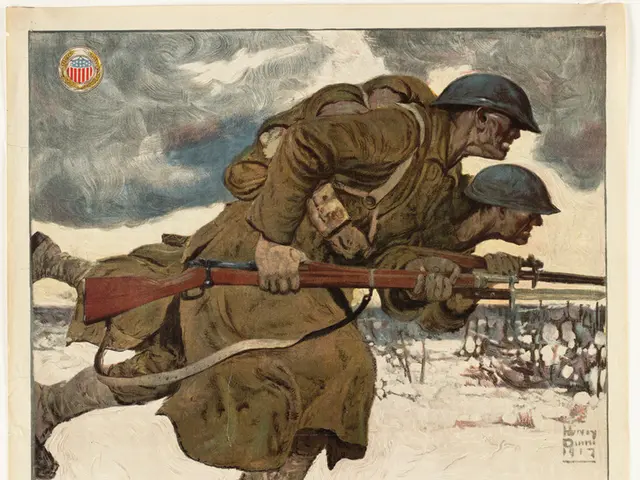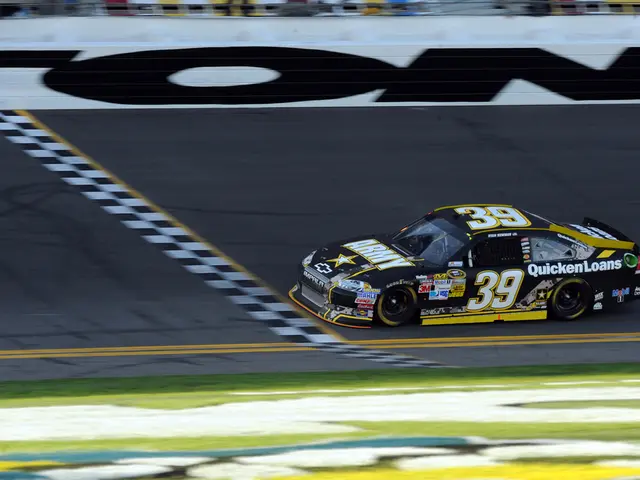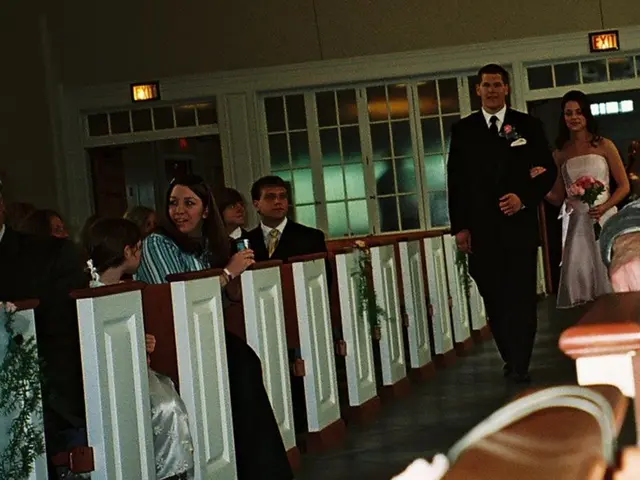Lawmakers in North Carolina Propose Renewed Prohibition on College Sports Gambling Bets
Revised Version:
In a fresh bid, North Carolina lawmakers are seeking to eliminate prop bets on college and amateur sports after growing concern about the impact of sports betting on student-athletes.
This renewed push is reflected in House Bill 828, introduced on Tuesday in the state House, which aims to prohibit prop bets on individual college player performances. The bill also looks to limit in-person betting during college games at sports venues.
Although the legislation shares similarities with last year's House Bill 967, the political climate has evolved. With a year of sports betting data and mounting national concern over athlete protection, proponents of the bill hope to see a different outcome this time around.
As a mirror image of its predecessor, HB 828 serves to crack down on proposition wagers to reduce risks associated with college and amateur sports betting[1][2][3].
Notably, it also targets in-person sports wagering at college sports venues, preventing on-site bets during college games[2].
Former UNC star Armando Bacot, who has faced hostility from gamblers, has shed light on the issue. Fueling a national conversation, Bacot's experiences have prompted the NCAA to launch a March Madness awareness campaign, warning fans that harassing college athletes due to lost bets is unacceptable[4].
While House Bill 828 is still under consideration, supporters of the measure are gearing up for a more prominent role in shaping policy[4].
Beyond the Bill
Beyond these restrictions, the legislative landscape encompasses proposed budget changes. For instance, the budget proposal suggests increasing the state's sports betting tax rate from 18% to 36%, potentially generating a substantial boost in revenue[5].
Aiming to redirect this revenue, the proposal also looks to increase funding for athletic departments across the University of North Carolina (UNC) System. Notably, UNC-Chapel Hill and NC State, previously excluded, would now receive funding[5].
Furthermore, initiatives such as the "Keeping Our Coaches Act" propose allocating $11 million in betting tax revenue towards funding high school coaching salaries, starting in the next school year[5].
In summary, the revitalized HB 828 seeks to limit prop bets and in-person wagers at college sports venues, while related budget changes aim to boost revenue and redirect funds into college athletics and high school coaching[1][2][5].
Sources
[1] "Prop Bets on College Sports Could Be Banned in North Carolina Under New Legislation." WRAL.com. November 29, 2023. https://www.wral.com/prop-bets-on-college-sports-could-be-banned-in-north-carolina-under-new-legislation/19912038/
[2] "North Carolina Lawmakers Introduce Bill to Prohibit College Player Props and Limit In-Person Betting at Collegiate Sports Venues." Legal Sports Report. November 29, 2023. https://www.legalsportsreport.com/26055/north-carolina-college-player-props-betting-ban-updates/
[3] "Prop Bets on College and Amateur Sports Could Be Banned in North Carolina." ESPN.com. November 29, 2023. https://www.espn.com/college-sports/story/_/id/42570176/north-carolina-may-ban-prop-bets-college-amateur-sports
[4] "UNC Star Armando Bacot Helps Shine Light on Impact of Sports Betting on College Athletes." The News & Observer. November 29, 2023. https://www.newsobserver.com/sports/college/carolina-basketball/article261173561.html
[5] "North Carolina Sports Betting: House Bill 828 Details and Key Provisions." Legal Sports Report. November 29, 2023. https://www.legalsportsreport.com/news/north-carolina/new-north-carolina-bill-takes-aim-at-prop-bets-addresses-in-person-betting-in-stadiums/
Advertising Disclosure
To deliver the best independent sports betting news and content, our website may receive a commission from partners when you make a purchase via links on our site.
Author
After working as a college basketball scout for Florida State University under Leonard Hamilton and the University of Alabama under Anthony Grant, Michael turned his focus to NBA content. Graduating from both universities, Michael now covers sports betting bills, sports betting revenue data, tennis betting odds, and sportsbook reviews. In his free time, Michael enjoys playing basketball, hiking, and kayaking, while keeping an eye on mid-level tennis matches.
- The latest proposal, House Bill 828, aims to prohibit sports betting on individual college player performances, restricting prop bets on college and amateur sports.
- This bill also looks to limit in-person betting during college games at sports venues, potentially reducing on-site wagers at college sports events.
- House Bill 828 is a renewed effort to crack down on proposition wagers in the context of sports betting, especially in relation to college and amateur sports.
- The bill targets in-person sports wagering at college sports venues, preventing on-site bets during college games to mitigate risks associated with such betting.
- In addition to these restrictions, proposed budget changes suggest increasing the state's sports betting tax rate from 18% to 36%, potentially generating more revenue and redirecting funds into college athletics and high school coaching programs.
- Initiatives such as the "Keeping Our Coaches Act" seek to allocate betting tax revenue towards funding high school coaching salaries, starting in the next school year.
- The reintroduced HB 828 reflects a growing concern among lawmakers about the impact of sports betting on student-athletes and prompts a discussion about the role of betting in sports and the need for policy changes in the field of sports betting and sports law.
- With the increasing popularity of sports betting, the evolution of state policies on sports betting and sports law is an important aspect of the general news, policy-and-legislation, and sports-betting sectors.








